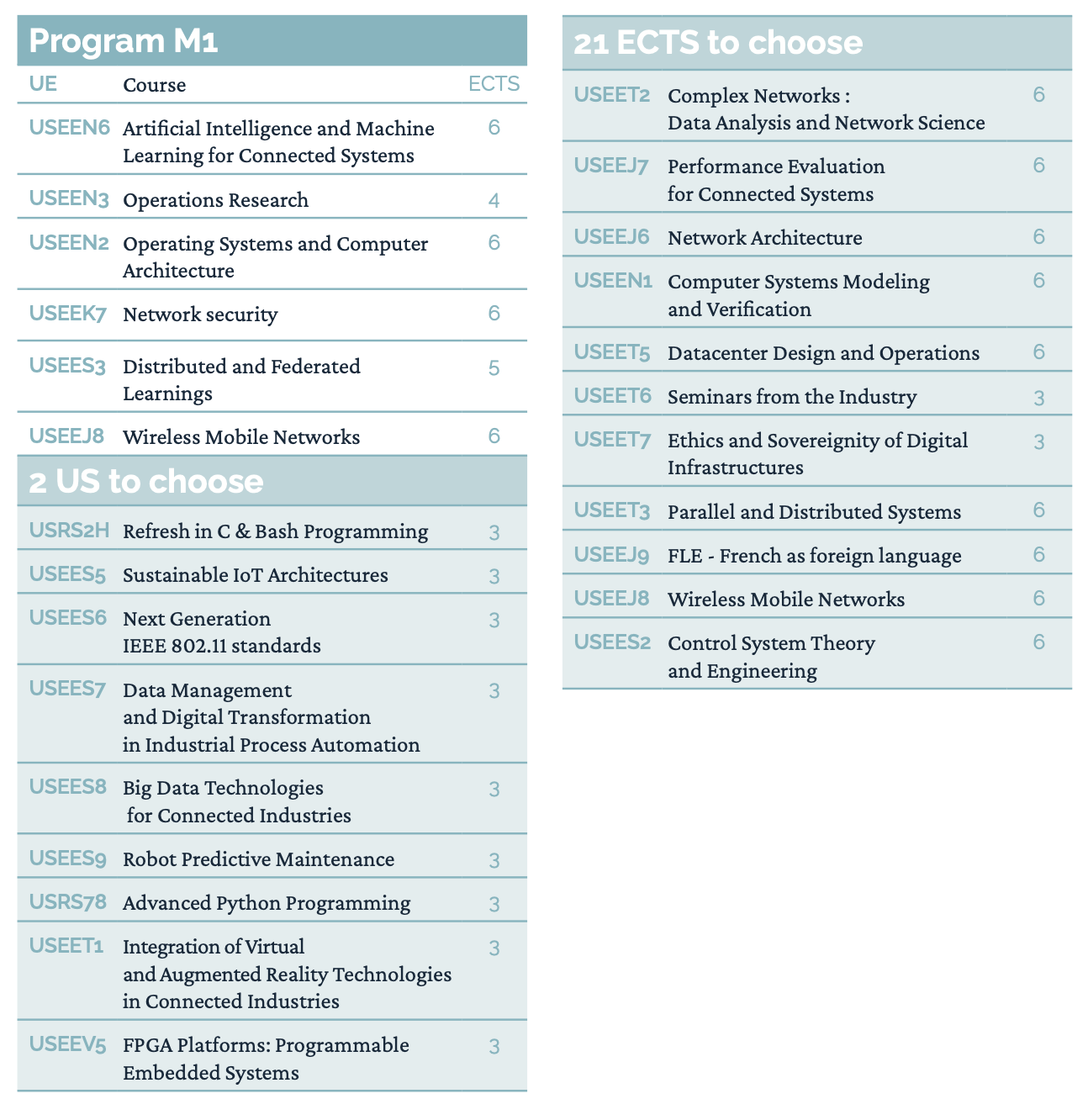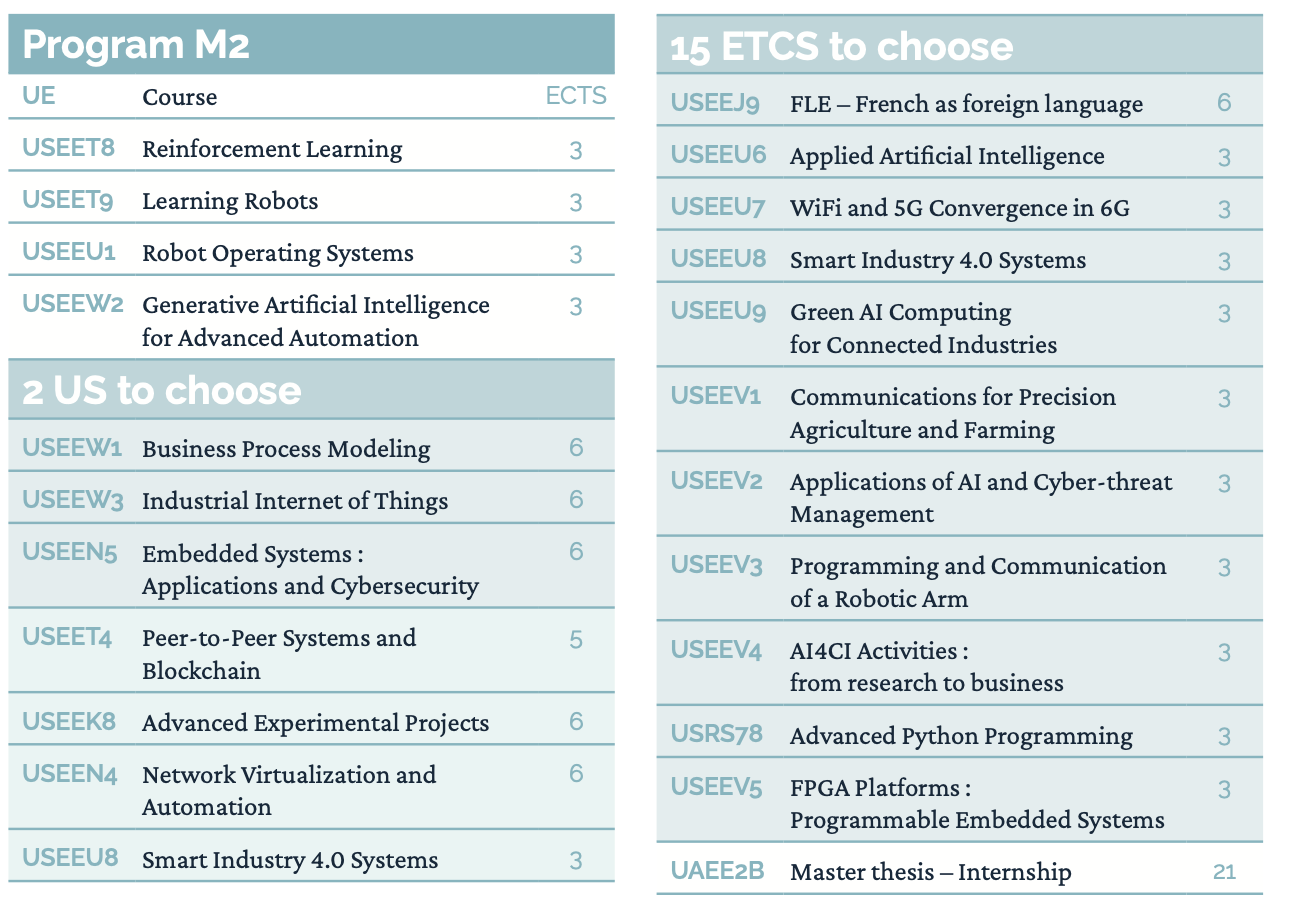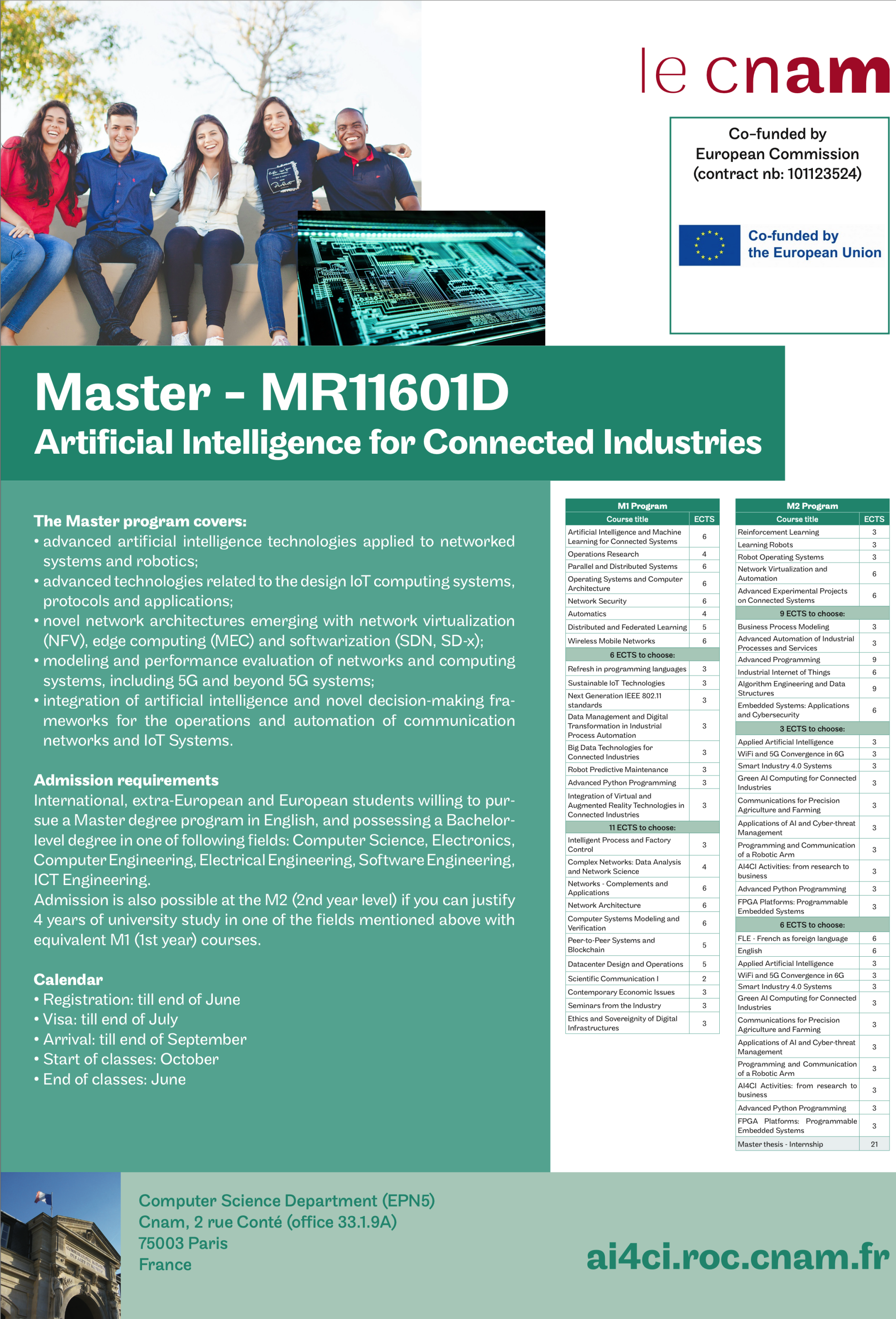- Language of instruction – English (B2 level required)
- Mode of learning – daytime, full time, on-site and remote classes.
- Length – M1: 1 year; M2: 1 year; M1+M2: 2 years.
- Official title appearing in the degree:
- Master Sciences, Technologies, Santé – Mention Informatique, parcours en anglais Artificial Intelligence for Connected Industries
- meaning Master of Science, Technologies and Health – speciality in Computer Science, track in Artificial Intelligence for Connected Industries
- Teaching period: mid September to beginning of June.
- Master code: MR11601D
- Synthetic fiche.
- French Ministry habilitation: until 31/08/2029 (fiche RNCP 39278)
- Coordinator: Stefano SECCI, Cnam.
- Operational Managers: Joaquin BAYONA PARGA, Hamida MMADI, Cnam.
- Contact: master-roc@cnam.fr
The master program is at the crossing between AI, networking and robotics. Advanced topics taught are represented in the following figure ; additional details on the program are given below.

The detailed teaching unit program is given in https://ai4ci.eu
The overall syllabus organization is as below.


More details on the Mulhouse teaching site – apprenticeship deployment (in Grench and English) of the AI4CI master at this webpage.
Note the master program can slightly change from one year to another one.


